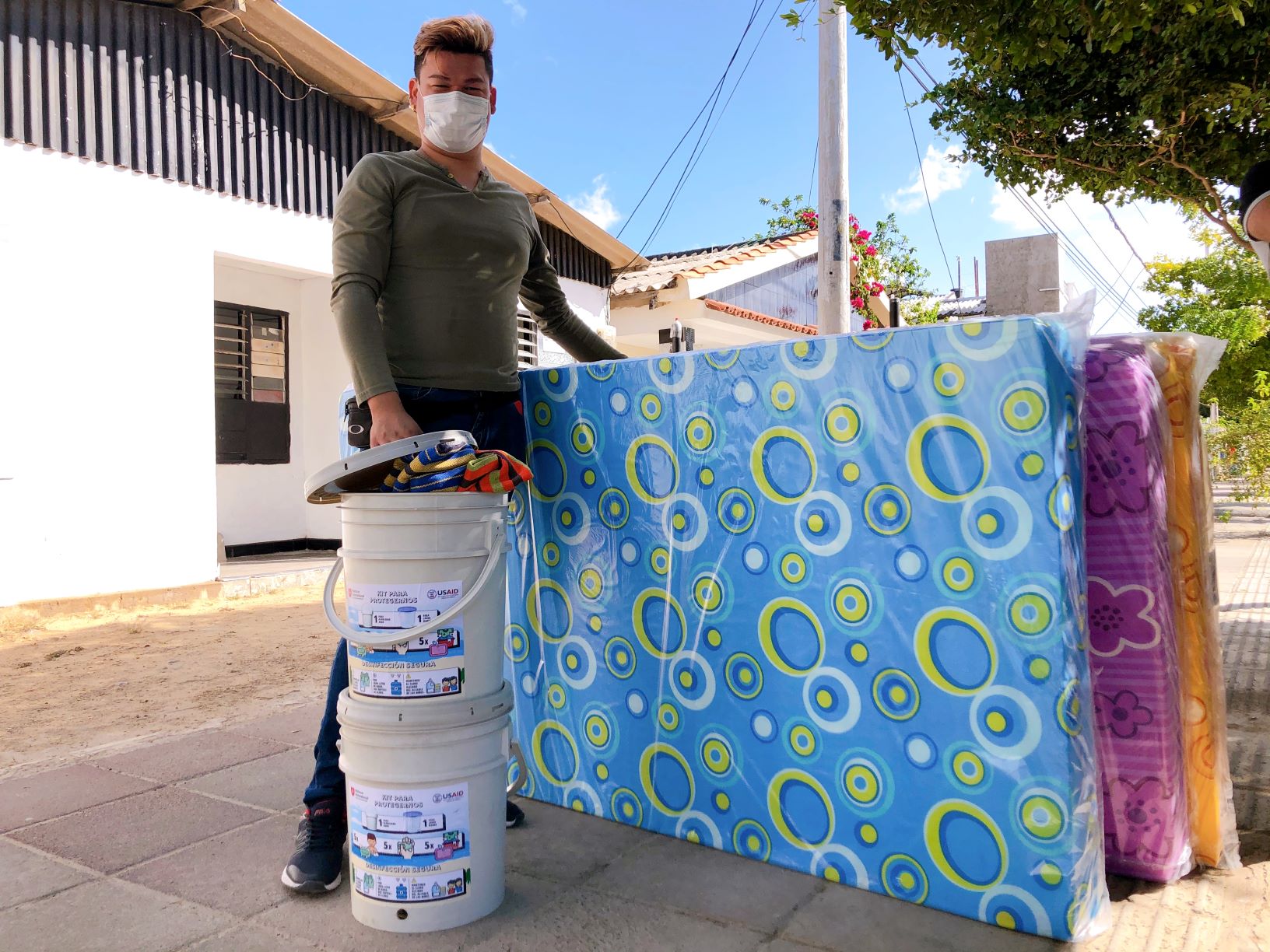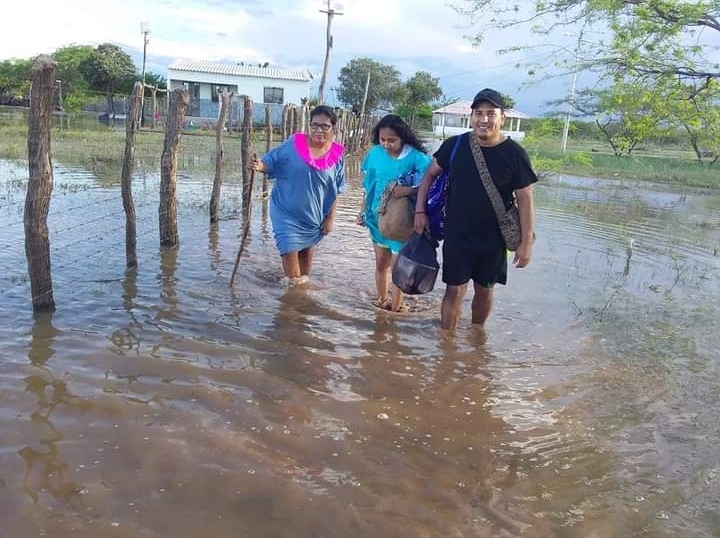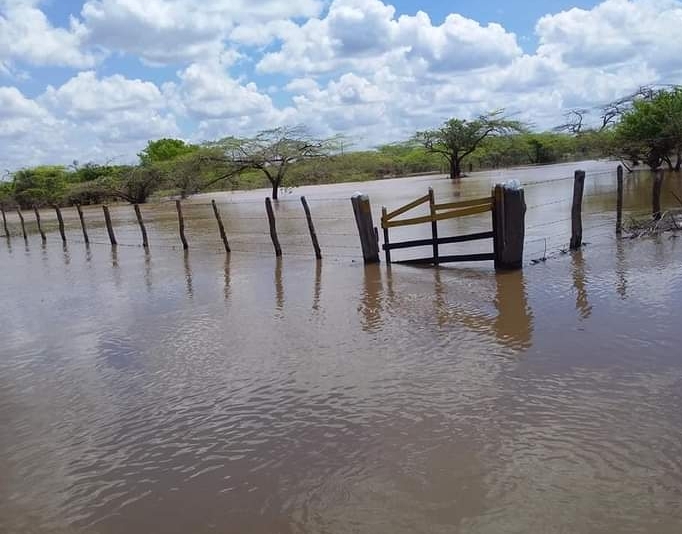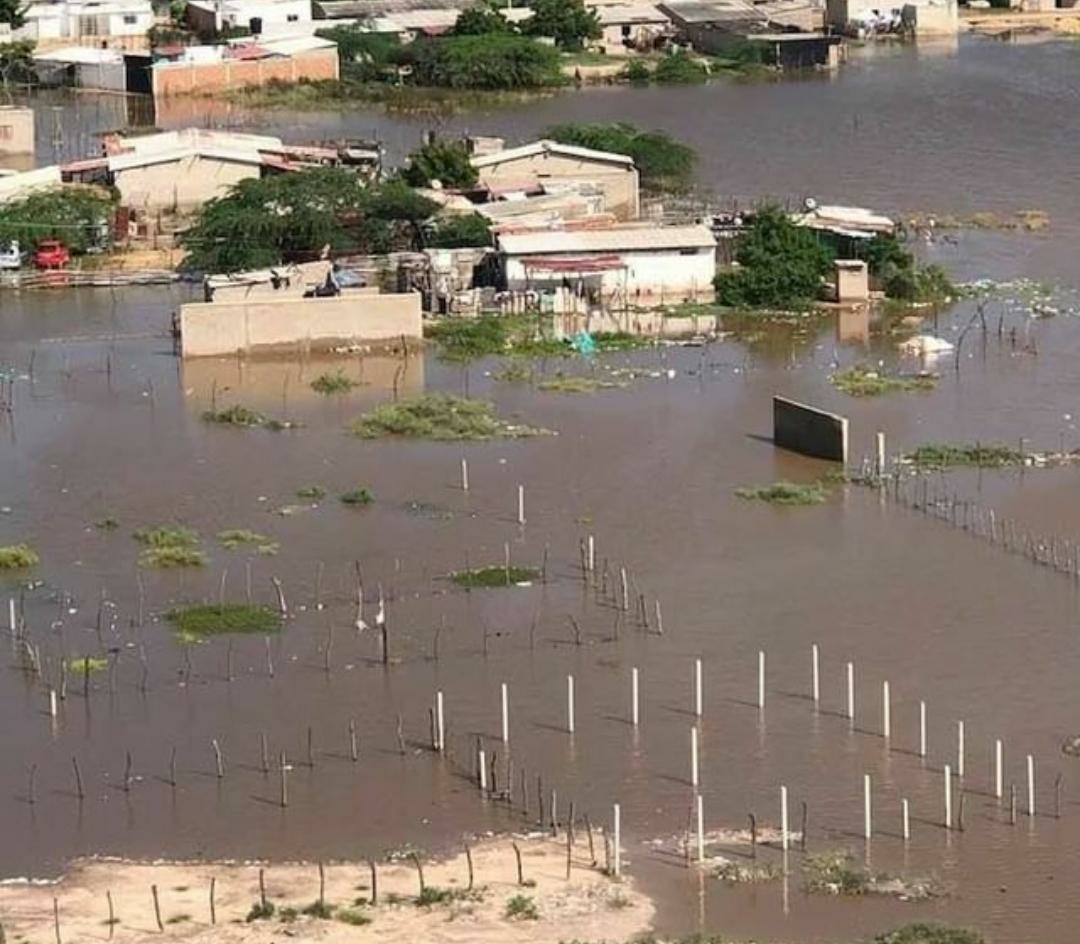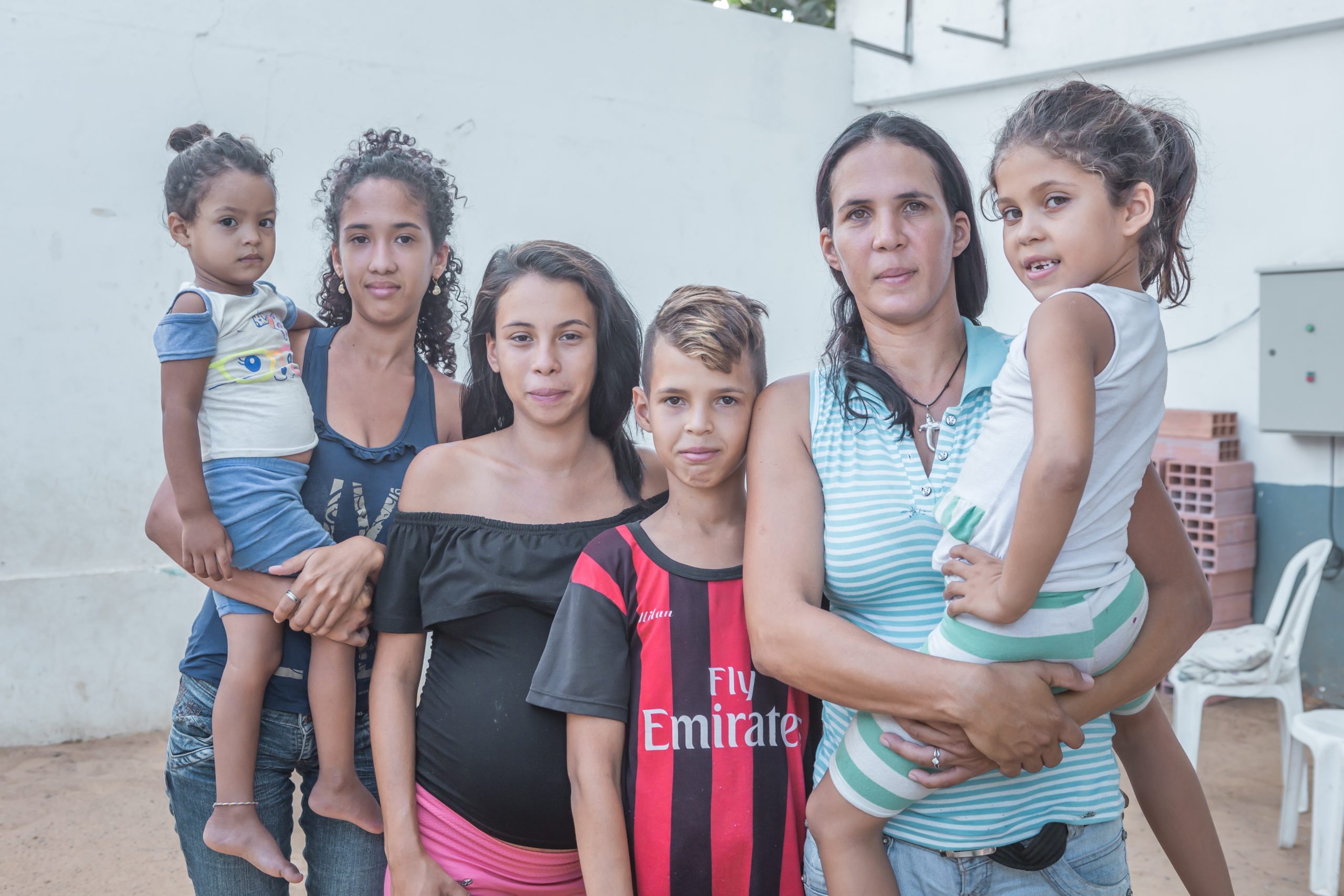South America
Project Announcement: MI Americas & USAID Partner to Provide Hurricane Iota Relief in Northern Colombia
In response to the damaging floods caused by Hurricane Iota, MI Americas has launched a project to provide emergency flood relief to three communities in the Colombian Departments of La Guajira and El Magdalena. The project, which began in January, consists of the distribution of water, hygiene, and sanitation (WASH) items including handwashing and hygiene kits, as well as shelter and non-food items such as mattresses and hammocks. The focus of the project will be assisting multi-ethnic, rural, and underserved communities in Riohacha and Manaure (La Guajira), and Ciénaga-Pueblo Viejo (El Magdalena). Some 800 families (4,000 individuals) will benefit from these activities.

In mid-November of 2020, Category 5 Hurricane Iota swept across Central America and the Caribbean, killing around 40 people and displacing tens of thousands more. Though, underreported, Iota also caused devastating floods and landslides across continental northern Colombia.
In La Guajira and El Magdalena, some 10,324 families were affected, 8,821 homes were damaged, with many of their belongings such as beds and mattresses destroyed. Flooded roads further isolated many rural communities.
Iota compounded the effects of the November Flash floods of Rio Tapia in La Guajira and the Rio Magdalena in Magdalena. In the weeks since the devastating floods, many families have been unable to repair their homes and recover their lost belongings. Many are still sleeping out in the open, increasing their risk of contracting mosquito-borne diseases.
In partnership with USAID’s Bureau for Humanitarian Assistance (BHA), the program will help prevent the spread of water and hygiene-related diseases which tend to increase with flooding. In addition to the distribution of water, sanitation and hygiene (WASH) kits and shelter items, community-level hygiene campaigns will be deployed to ensure proper use. While many community members are already sensitized to the use of soap, it is often not prioritized and often not available due to financial constraints. Finally, both women and men will be involved in sensitization activities to reduce the disproportionate burden on women in the implementation of hygiene measures in the household.
The two components of the distribution program will include the following items:
- WASH – Hand-washing and water storage family kits will contain:

-
- 2 water recipients with lib (20L) on a one-time distribution to improve water storage and handwashing capacity at the household level (one with a tab for storage and one for fetching water)
- Hand soap 250g/person
- Body soap 250g/person/month
- Clothes washing soap 200g/person
- Disinfectant 11/family
- Gloves 1 pair for the safe use of disinfectant
- Bleach will be provided to the community: 2 taps per liter, 0,05% solution (which is meant to allow them to disinfect surfaces in the household to improve the overall hygiene and apply Covid-19 mitigation recommendations)
- Shelter and Settlement Non-Food Items:
-
- 3 hammocks
- 2 mattresses
- 3 blankets
- 5 bedsheets
La Guajira & El Magdalena Departments are home to many vulnerable groups. In La Guajira, 90% of rural communities were heavily affected by the internal armed conflict and 70% have endured multiple displacements, living in dire conditions and lacking access to basic services. The Wayuu indigenous group makes up nearly half of the population of La Guajira.
In Magdalena, the community of Ciénaga-Pueblo Viejo is highly vulnerable to floods because of its location between the Caribbean Sea and the wetland areas of the Ciénaga Grande de Santa Marta. This region is home to Afro-Colombian and indigenous Kogui communities. Both areas are highly vulnerable to recurring disasters, such as floods, droughts, and forest fires, leading to high levels of food insecurity, malnutrition, and high maternal and infant mortality rates.
MI Americas has been working in Colombia since 2014, and has since forged lasting relationships with community leaders, regional and local authorities, and has working relationships with local NGOs such as ABIUDEA, an implementing partner. This program will complement our existing, longer-term projects in the region and bridge critical resource gaps.
While much attention has been given to Hurricane Iota’s devastation on the Colombian island of Providencia – its infrastructure was nearly severely damaged – “MI Americas’ focus on these rural communities in La Guajira and Magdalena is testament to our focus on forgotten crises,” says Jelena Kaifenheim, Latin America Regional Manager, MI Americas.
MI Americas’ community-based approach means that the program will be tailored to the needs of each community, where the interests of those most vulnerable are front and center.

